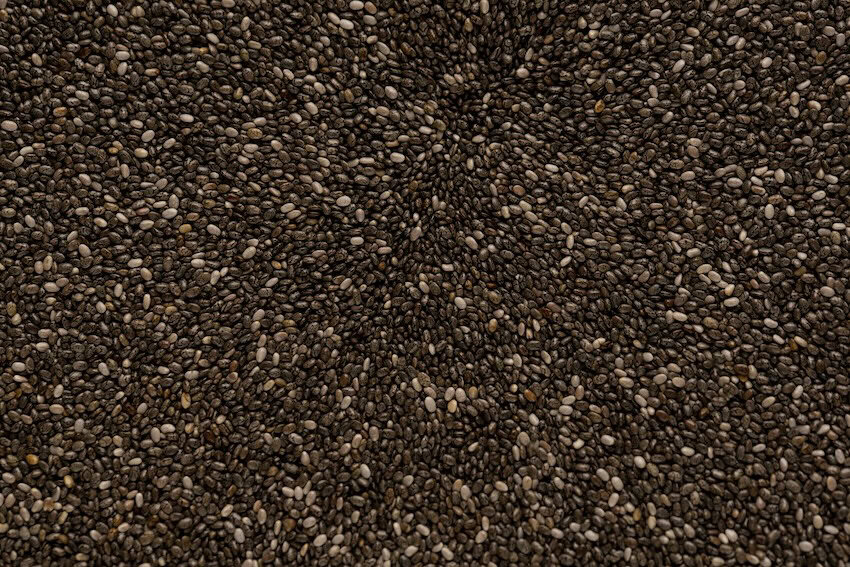Sia seeds are exactly what?
Chia is a native to South Mexico and Northern Guatemala, which belongs to the same family like mint and lavender. We know that its upbringing began about 6,000 years ago. Unlike today, as far as Columbian’s cultures are concerned, Chia is not a food filling-this is one of the most important foods.
From Meso America to the world
According to the dictionaries, the word “chia” comes from the Nahwad and means “seeds of oil.” It is believed that it is derived from the “strong” or “strengthening” because of its powerful properties.
Chia crops are considered to be the third place of importance among crops, only surpassed Borer And Beans. A tribute was paid from people who won between 5,000 and 15,000 tonnes of Xia in Tenoctitlan, a previous version of the Columbian city of Mexico. Sia was also used as a currency in tribute and business transactions.
Beyond the presence of a major meal, Chia was used in various ways. It was on the ground in flour to make different dishes and used to call a drink CannabinoIt mixed with sia powder with water. The seeds were also given to the gods – re -planted as a sacred act to bless future harvests – and extracted chia oil to use in body paint and pottery decorations.
Chia flour had an incredibly long layer of life, which made a great meal during drought and long trips. It was said that a small bag of a small bag on the ground was said to be running out of the Colorado river to the Pacific Ocean – or chasing prey until it collapsed. I think it is difficult to believe, but maybe some of our marathon friends try this and tell us if they feel more excited!
Re -discovered treasure
During the colonial period, the chia was almost disappearing because its cultivation was associated with the native “pagan” rituals, and Spanish turned it with other grains. However, some remote communities continued to develop it and allow it to survive to this day-without the same importance, it was once held in pre-Columbian cultures.

Today, Zia’s world’s largest consumer is the United States. In the 1990s, when health food brands began to sell it for its weight loss benefits, the interest in Zia increased. But as a person who had been drinking lemon water with Xia from childhood, I could say that I did not lose even a gram because of Xia.
This is one of the most nutritious foods you can eat. Per 100g, chia seeds are:
• 21 grams high quality protein
• 24 grams of incomplete fatty acids (omega -3s)
• 34 g fiber (121%of the recommended daily intake!)
• High levels of calcium (606 mg) and magnesium (306 mg)
• Potassium is five times more potassium than a banana – it explains why Meso Aamerican was popular among the players.
Benefits
Recent studies confirm that Sia is a great friendship with heart health and inflammation. It promotes good digestion and contributes to the experience of unparalleled gut health. Due to its high fiber content, it helps maintain a sense of fullness and improves the efficiency of hydration.

Most importantly, domestic knowledge was correct – one of the best foods for Sia athletes because it helps with muscle repairs and growth.
Warnings
Chia absorbs its weight 10 times, so my recommendation must first soak in any liquid – water, milk or juice. Like most Mexican people, you can drink it in water with Xia. You can also add it to smooths and juices. People with sweet tooth can try Sia Jam!
By spraying on the salads or fruit you can eat it green, but be careful not to overdo it – it absorbs the liquid! When speaking from experience, it will be very uncomfortable when those small seeds expand you.
You can make chia flour. Mix it with fine powder or process, use bread or bake to bread or bake.
The possibilities with Xia are endless – just like some young women I have seen on social media, I have finished with a “Chia baby” in a hospital bed.
If you are a highly -efficient athlete, have you put Zia into your diet? How did this benefit you? Let us know!
Maria melandez A Mexico City Food blogger and influencer.
(Tagstotranslate) Chia Seeds (T) Mexican Food (T) Taste of Mexico
Story Credit








